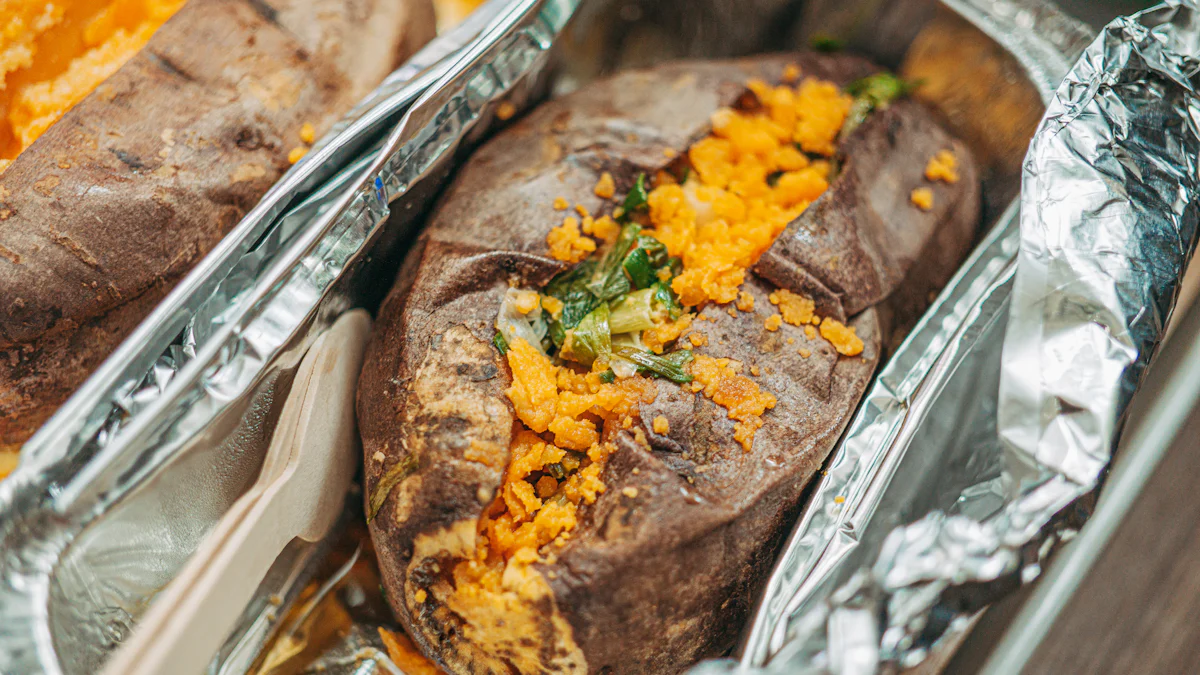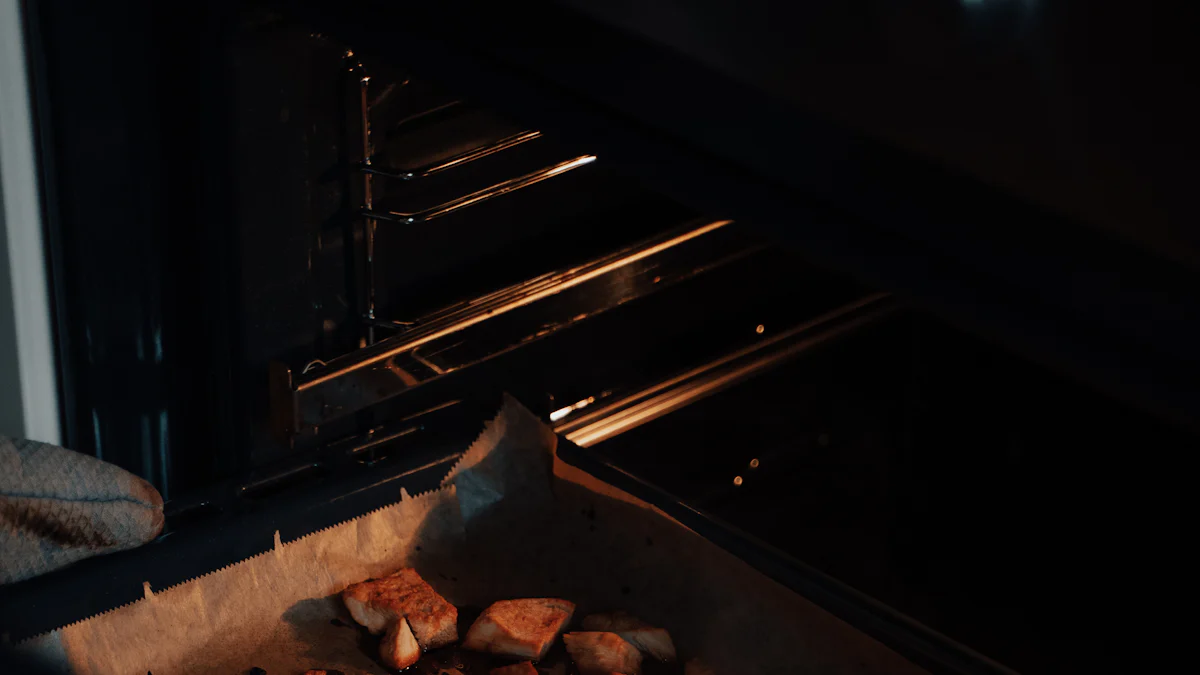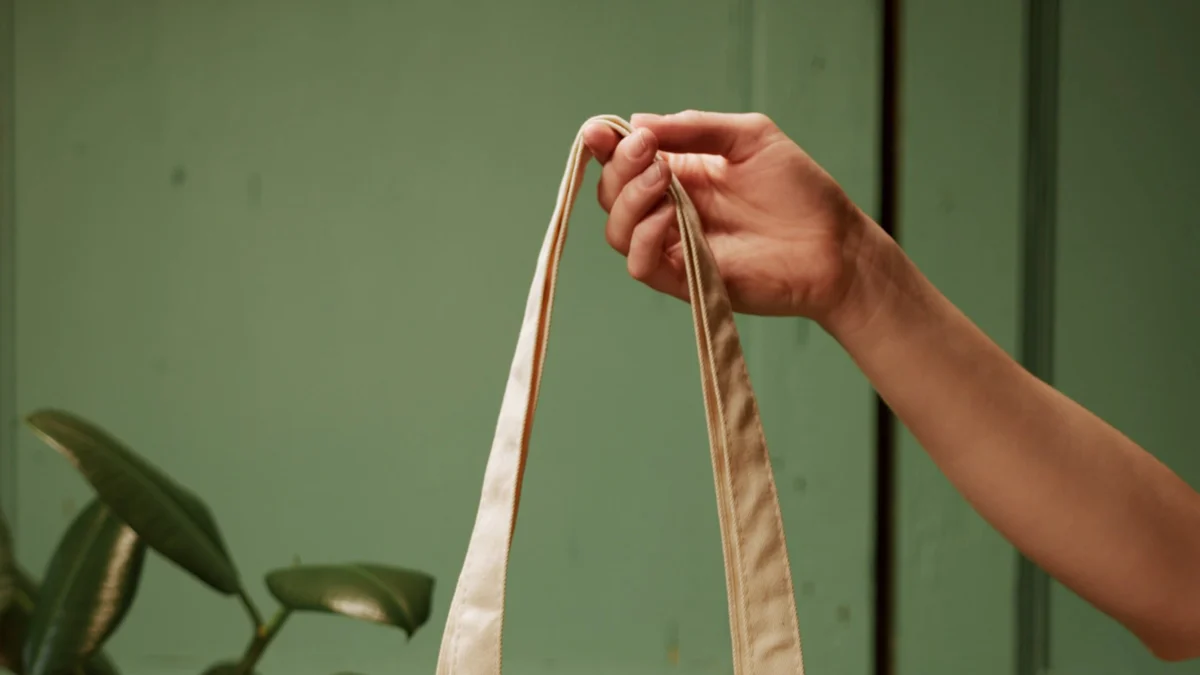Are aluminium foils safe for use with the air fryer?

Many people wonder about the safety of using aluminum foil in an air fryer. Concerns often arise about potential hazards and best practices. Understanding the correct way to use aluminum foil ensures safe and efficient cooking.
Understanding Aluminum Foil and Air Fryers
What is Aluminum Foil?
Composition and Properties
Aluminum foil consists of thin sheets of aluminum metal. Manufacturers produce aluminum foil by rolling large slabs of aluminum until they become thin. The resulting material exhibits excellent heat conductivity and flexibility. These properties make aluminum foil ideal for various cooking applications.
Common Uses in Cooking
Cooks use aluminum foil for multiple purposes in the kitchen. Wrapping food items helps retain moisture during cooking. Lining baking trays prevents food from sticking and simplifies cleanup. Covering dishes shields food from direct heat, ensuring even cooking.
How Air Fryers Work
Mechanism of Hot Air Circulation
An air fryer operates by circulating hot air around food. A fan distributes the heated air evenly, creating a crispy outer layer. This process mimics deep frying but uses significantly less oil. The rapid air movement ensures thorough cooking.
Benefits of Using an Air Fryer
An air fryer offers several advantages. First, it promotes healthier cooking by reducing oil consumption. Second, the air fryer cooks food quickly and efficiently. Third, the compact design of an air fryer saves kitchen space. Finally, the versatility of an air fryer allows for preparing a wide range of dishes.
Safety Precautions When Using Aluminum Foil in an Air Fryer

Potential Risks
Fire Hazards
Aluminum foil poses fire hazards in an air fryer. Improper placement can cause the foil to touch the heating element. This contact may lead to sparks and potential fires. Always ensure that the foil remains securely in place and does not come into contact with the heating element.
Chemical Reactions
Aluminum foil can react with certain foods in an air fryer. Acidic foods like tomatoes, citrus fruits, and vinegar can cause the foil to break down. This reaction may result in aluminum leaching into the food. Avoid using aluminum foil with acidic ingredients to prevent chemical reactions.
Best Practices for Safe Use
Proper Placement of Foil
Place aluminum foil correctly in the air fryer. Line the basket or tray without covering the entire surface. Leave space for air to circulate around the food. This placement ensures even cooking and prevents overheating.
Avoiding Overcrowding
Do not overcrowd the air fryer when using aluminum foil. Overcrowding blocks airflow and affects cooking performance. Arrange food items in a single layer on the foil. This arrangement allows hot air to circulate freely and cook the food evenly.
Securing the Foil
Secure aluminum foil to prevent it from blowing around in the air fryer. Weigh down the edges of the foil with food or use small clips. This step ensures that the foil stays in place during cooking and does not obstruct the heating element.
Avoiding Acidic Foods
Avoid using aluminum foil with acidic foods in an air fryer. Acidic ingredients can cause the foil to degrade and leach into the food. Opt for non-reactive alternatives like parchment paper when cooking acidic dishes. This practice ensures food safety and prevents unwanted chemical reactions.
Benefits of Using Aluminum Foil in an Air Fryer
Enhanced Cooking Efficiency
Even Heat Distribution
Aluminum foil helps distribute heat evenly in an air fryer. The foil reflects heat, ensuring that food cooks uniformly. This even distribution prevents hot spots and undercooked areas. Consistent cooking results in better texture and flavor.
Reduced Cleaning Time
Using aluminum foil in an air fryer significantly reduces cleaning time. The foil catches drips and spills, keeping the basket clean. After cooking, simply remove the foil and dispose of it. This practice minimizes the need for scrubbing and makes cleanup quick and easy.
Versatility in Cooking
Different Types of Foods
Aluminum foil offers versatility when cooking different types of foods in an air fryer. Wrap delicate items like fish or vegetables to retain moisture. Use foil to create packets for marinating meats. The flexibility of aluminum foil allows for various cooking techniques.
Customizing Cooking Methods
Aluminum foil enables customization of cooking methods in an air fryer. Create dividers to cook multiple items simultaneously without mixing flavors. Shape the foil to fit specific dishes or to cover only certain parts of the food. This adaptability enhances the overall cooking experience.
Alternatives to Aluminum Foil

Parchment Paper
Benefits and Drawbacks
Parchment paper offers several advantages in air frying. The grease-resistant surface prevents food from sticking. This feature simplifies cleanup and ensures even cooking. Parchment paper can be reused multiple times, making it cost-effective. However, it should not be exposed to open flames or used in broilers. The paper may burn if it comes into direct contact with the heating element.
Suitable Uses
Parchment paper works well for baking, roasting, and grilling. It provides a non-stick surface for delicate items like fish and vegetables. Wrapping food in parchment paper helps retain moisture and flavor. This method suits dishes that require gentle cooking. Use parchment paper to line the basket or tray of the air fryer. Ensure that the paper does not cover the entire surface to allow proper air circulation.
Silicone Mats
Benefits and Drawbacks
Silicone mats offer durability and flexibility. These mats are non-stick and easy to clean. Silicone mats can be cut to fit any size air fryer. They reduce waste compared to disposable liners. The mats are dishwasher safe, providing quick and convenient cleanups. However, silicone mats may not provide the same crispiness as aluminum foil. The mats can also be more expensive initially.
Suitable Uses
Silicone mats suit various cooking methods in an air fryer. Use these mats for baking cookies, roasting vegetables, and air frying meats. The non-stick surface ensures that food does not stick to the mat or the air fryer. Silicone mats can also create dividers to cook multiple items simultaneously. This versatility enhances the overall cooking experience. Ensure that the mat fits properly in the air fryer to avoid obstructing airflow.
Comparing Aluminum Foil with Other Cooking Methods
Aluminum Foil vs. Parchment Paper
Heat Resistance
Aluminum foil withstands high temperatures without burning. This makes it suitable for various cooking methods, including grilling and roasting. Parchment paper also resists heat but has limitations. Direct contact with heating elements can cause the paper to burn.
Ease of Use
Parchment paper offers ease of use in many cooking applications. The grease-resistant surface prevents food from sticking. This feature simplifies cleanup. Aluminum foil requires careful placement to avoid contact with heating elements. Proper securing of the foil ensures safe use.
Aluminum Foil vs. Silicone Mats
Durability
Silicone mats provide durability and flexibility. These mats withstand repeated use without tearing. Aluminum foil often needs replacement after each use. The thin material can tear easily during cooking or cleanup.
Reusability
Silicone mats offer reusability, making them cost-effective over time. Cleaning these mats is easy, and they fit any air fryer size. Aluminum foil does not offer the same level of reusability. Frequent replacement of the foil results in higher long-term costs.
The blog discussed the safe use of aluminum foil in air fryers. Following safety precautions ensures a hazard-free cooking experience. Users should avoid contact with heating elements and acidic foods. Experimenting with different methods helps find the best fit for individual needs. Aluminum foil offers versatility and practicality, enhancing cooking efficiency and reducing cleanup time. The flexibility of aluminum foil makes it a valuable tool in any kitchen.
See Also
Choosing Between Parchment Paper and Foil for Air Frying
Replacing an Oven with an Air Fryer: Is It Possible?
Using Pyrex in an Air Fryer: Is It Safe?
